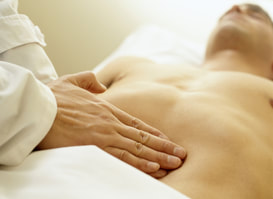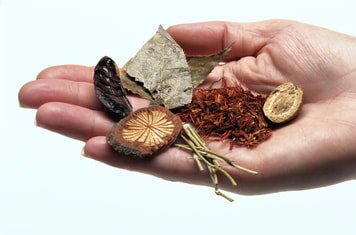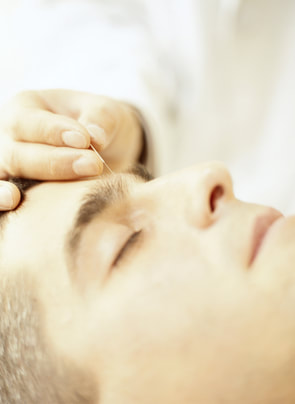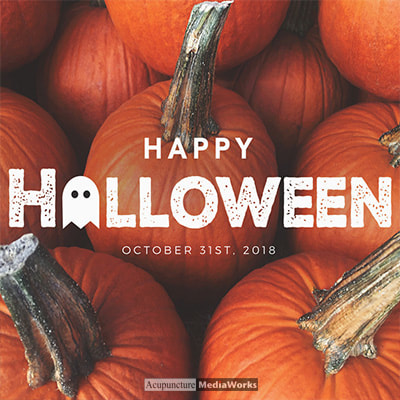 The dictionary defines stress in multiple ways, but there is only one that matters when we discuss how stress affects our physical bodies. The definition is this, “stress is a physical, chemical or emotional factor that causes bodily or mental tension.” And while most people think of stress as being detrimental, it truly does have a function in our bodies. Stress is the body’s way of signaling for help or a break in the routine. If we don’t listen to these signals, we can develop imbalances in our bodies, which can then lead to illnesses. Cortisol is the hormone most closely related to stress. Cortisol is a big component of the “fight or flight” response we feel when we are scared or threatened. And in small bursts, cortisol is helpful. However, when stress becomes chronic, the cortisol levels become elevated and never return to normal. This puts the body in a constant state of being on edge, eventually causing insomnia, depression, anxiety, digestive issues and even mental illness. There are ways to fight and reduce stress though. Simple things like exercise, meditation, coloring, talking with friends and even acupuncture. Admittedly, most people don’t think of being stuck with tiny needles as “relaxing”, but it really is. Acupuncture has been around for thousands of years and it is becoming more mainstream every single day. It is even being used in some hospital emergency rooms for those who are in pain and anxious. Acupuncture acts like physical therapy for the nervous system. The tiny needles re-train the nervous system and the brain to behave as it should normally. For the nervous system to act and respond accordingly, cortisol has to be at normal levels and only used when a true “fight or flight” situation occurs. Studies show acupuncture does this. There are over 400 acupressure points on the body and another 100 or more in the ears. But within all these choices, there are certain points that are much better for treating stress. Here are three great choices for dealing with your stress levels. Yin Tang – This point is located midway between the inner ends of the eyebrows. Yin Tang is used to treat stress, anxiety and insomnia. It is also a great point to use for eye issues, nasal problems and headaches. Ren 17 – Located in the center of the chest, midway between the nipples on the breastbone or sternum, this point is great for opening the chest. Many people feel chest tightness and constriction when they become stressed. This point will definitely help. It is frequently used to treat anxiety, depression and nervousness, as well as asthma or other lung issues. It can also be added to treatments to help with digestive issues or heart problems like palpitations. Heart 7 – This point is located on the underside of the wrist crease on the outer edge. It is found in the depression on the outer side of the tendon. In Traditional Chinese Medicine, this point is used to calm the mind and heart. It works well for anxiety, stress and anger too. If stress is something you experience frequently, seeking out a licensed acupuncturist might just be the remedy you need to get it under control. And don’t forget that long-term mental stress can turn into physical stress that leads to disease. So what are you waiting for? As an acupuncturist, I am constantly assessing. Before my patients answer a single question, I am taking in cues as to what types of imbalances might be going on. In five-element acupuncture, the five major organ systems are the kidney, liver, lung, heart and spleen. When any of these systems are out of balance, certain physical, mental and emotional issues can manifest. Even if you aren’t experiencing a specific health issue, however, you will likely display particular personality traits that fall within these five organ systems. In the five-element world, the lungs are connected to the element of metal.
So what does this mean? Metal is rigid, unbending, set in its structure. Someone who is a lung-type would take comfort in rules, reason and rationality. This person is someone who likes to maintain a sense of control over himself and his environment. To a lung personality, it is important that their world is in order, and that it makes sense. The lung also controls the emotion of grief, and the idea of letting go. Someone with a lung imbalance might have an aura of sadness or loss, or have difficulty letting go of past suffering. So, as a practitioner, what might I see that would demonstrate a lung personality in a prospective patient? These types of patients might not be overly warm and fuzzy, but they would display good manners and a respectful air. They would likely be right on time for their session, paperwork filled out completely and perhaps have a number of questions regarding exactly what they should expect following their session. In any of the organ systems, an imbalance would cause these personality traits to become more pronounced. In the case of lung energetics, a polite manner might come across as aloof; an orderly nature might transform into the desire to control the people around you; perfectionism can result in frustration with both self and others. Remember what I said about letting go? From a physical standpoint, the lungs have a connection to constipation. If the body can’t let go, this is the result. If the mind can’t let go, you might feel stuck, and unwilling to change. Or, you may simmer over past grievances, unable to move on. You might also become frozen by your desire for perfection. Since the lung is all about correct, fair behavior, it may be hard for a lung type to think outside the box, or to come up with creative solutions. If you fall into this category, acupuncture can work wonders on helping you to relax, soften and release old, negative patterns that have become stuck within.  A study published by the National Institute of Health looked at the use of Chinese herbal formulas in conjunction with conventional medicine for the treatment of chronic rhinosinusitis. The study surveyed 4,294 patients who utilized Traditional Chinese Medicine and of these, nearly 97 percent received herbal remedies. The most commonly prescribed herbal formula for this condition was Xin Yi Qing Fei Tang. While the study did not look at the outcome of the use of the herbal remedy, it is conclusive more people are turning to alternative medicine in order to treat everyday problems like congestion. Congestion of the chest and sinuses is something everybody has experienced at some point during their life. It can be caused by allergies, the common cold or even changes in the weather. Regardless of the cause, it makes life difficult when we are unable to breathe properly. Many people reach for over-the-counter decongestants as a first line defense. But there are side effects to be aware of when using anything synthetically made in a lab. Natural remedies, like Traditional Chinese Medicine (TCM), are safer and can generally be used long-term without the side effects. An estimated 30 million people suffer with sinus problems, and congestion is one of the top symptoms associated with sinus issues. Most people who suffer with sinus issues have them for the majority of their lives. This is because once the problem has been cleared up using conventional medications or treatments, the sinus cavities themselves have not been completely drained and the body still sees the remaining mucus as a foreign invader it must attack. This is where Traditional Chinese Medicine surpasses conventional medicine. TCM addresses the symptoms and the root of the problem. So not only will the congestion be targeted, but so will be the cause of the congestion. Too much sugar causing excess phlegm? hronic allergy flare ups? Weak lungs due to asthma or COPD preventing you from expelling the pathogens? All of these things can lead to chronic congestion and TCM can help. TCM uses many tools to treat congestion. The two most commonly used are acupuncture and herbal formulas. One of the most commonly used herbal formulas is Cang Er San. This formula contains xanthium fruit, magnolia flower, angelica root and mint. If yellow mucus is present, then cooling herbs like honeysuckle flowers and Scutellaria root are added to address the excess heat. But the base formula unblocks the nasal passages, reduces inflammation and expels toxins, all of which lead to congestion. Another popular choice of TCM practitioners is Bi Yan Pian. This formula works to clear the nasal passages and it usually accomplishes this within five days to a week. The herbs in Bi Yan Pian work to disperse wind, expel toxins, relieve inflammation and dissolve phlegm. Ask me to find out how Traditional Chinese Medicine can help you with any respiratory and congestion issues you might have. CITATION: https://www.ncbi.nlm.nih.gov/pubmed/25511322 Stress is a word many people are familiar with. The dictionary defines stress in multiple ways, but there is only one that matters when we discuss how stress affects our physical bodies. The definition is this, “stress is a physical, chemical or emotional factor that causes bodily or mental tension.” And while most people think of stress as being detrimental, it truly does have a function in our bodies. Stress is the body’s way of signaling for help or a break in the routine. If we don’t listen to these signals, we can develop imbalances in our bodies, which can then lead to illnesses.
Cortisol is the hormone most closely related to stress. Cortisol is a big component of the “fight or flight” response we feel when we are scared or threatened. And in small bursts, cortisol is helpful. However, when stress becomes chronic, cortisol levels become elevated and never return to normal. This puts the body in a constant state of being on edge, eventually causing insomnia, depression, anxiety, digestive issues and even mental illness. There are ways to fight and reduce stress though. Simple things like exercise, meditation, coloring, talking with friends and even acupuncture. Admittedly, most people don’t think of being stuck with tiny needles as “relaxing,” but it really is. Acupuncture has been around for thousands of years and it is becoming more mainstream every single day. It is even being used in some hospital emergency rooms for those who are in pain and anxious. Acupuncture acts like physical therapy for the nervous system. The tiny needles retrain the nervous system and the brain to behave as it should normally. For the nervous system to act and respond accordingly, cortisol has to be at normal levels and only used when a true “fight or flight” situation occurs. Studies show acupuncture does this. Another way acupuncture helps reduce stress is by keeping the heart rate normal. When the body is stressed, the heart tends to pump faster and in some cases, a person may even develop palpitations or atrial fibrillation. The heart rate is closely connected to the vagus nerve. If the vagus nerve is stimulated, so too will the heart rate. There are specific acupressure points on the arms and hands that can calm the vagus nerve and the heart. Stress is frequently related to specific emotions. Acupuncture controls anxiety and stress by affecting the part of the brain that regulates emotions and then reduces anxiety naturally. This allows the body to calm down and the mind to relax. Chronic stress frequently leads to depression. Again, acupuncture can help with this. As the stress is relieved through regular acupuncture treatments and other mind/body techniques, then depression will start to clear up as well. Many people are even able to get off their depression medications following a regimented treatment plan that utilizes acupuncture and herbs. Lastly, digestive disorders can be caused or exacerbated by chronic stress. Digestion occurs while the body is in the “rest and digest” phase. When stress is added into the mix, digestion may become disrupted and things like diarrhea can occur. Studies have shown acupuncture is extremely effective at decreasing or eliminating bouts of diarrhea. Acupuncture is a wonderful tool for fighting stress. As few as two needles can reset your body and decrease your daily stress level. Book in today to find out how to resolve your stress the natural way.  Yin Tang Acupoint Yin Tang Acupoint A recent study published by the Journal of Neural Regeneration Research found acupuncture treatments can lead to improved cognitive function. Functional brain MRIs showed an increase in the communication areas of the brain associated with higher level cognitive function and memory. When cognitive function is improved, so too is one’s ability to stay focused and on task. This study also concluded acupuncture treatments can increase neural plasticity, which decreases naturally as we age. All of this demonstrates acupuncture can indeed improve overall brain function, allowing people to live more fulfilling lives. Staying focused can be challenging in the world we live in. We are constantly bombarded with sights, sounds, smells, interruptions and more. It can be really frustrating. A recent study by Microsoft found the average human has an attention span of only eight seconds! By comparison, a goldfish has a nine second attention span. We, as a species, can’t even remain focused as long as a goldfish. This speaks volumes about the state of the world. Part of the problem is our bodies were designed to move and we have become too sedentary. Our nervous system doesn’t know how to respond to this. And it also affects our muscles, tendons and circulatory systems. The more time we spend on our phones, tablets, etc., the more stagnant everything becomes. Our muscles shorten, tighten and atrophy, our circulation becomes sluggish and our brains foggy. For everything to function properly, you have to get up and move. But there are other ways to increase focus and concentration. Traditional Chinese Medicine (TCM) can be very helpful when it comes to improving focus and concentration. There are specific acupuncture points, as well as individual herbs and herbal formulas that can be utilized. One of the most commonly used acupuncture points for improving focus is called Du 20 or Governing Vessel 20. This point is located on the top of the head, midway between the apexes of both ears. Du 20 has been noted to improve mental clarity and awareness, while also enhancing memory. Yin Tang is another favorite point of licensed acupuncturists. Yin Tang is located between the inner ends of both eyebrows. Yin Tang improves concentration and memory, while also clearing the mind and lifting the spirits. There are a couple of individual herbs used in TCM that can be very helpful for improving focus. The first is known as Dan Shen or Salvia. TCM uses this herb to increase blood flow and a study done in 2003 showed focus and memory were improved on subjects who used this herb. An herbal formula known as Bu Nao Wan is frequently prescribed for people who have memory problems related to weakness in the kidney system of TCM. Several of the herbs in this formula have been used for centuries to calm the mind and improve focus. If you or somebody you know suffers from attention deficit issues, acupuncture might be exactly what they need to get back on track. Ask me to find out how acupuncture can help! CITATION: https://www.ncbi.nlm.nih.gov/pmc/articles/PMC5361509/ |
AuthorsRebecca M H Kitzerow is a Licensed Acupuncturist practicing in La Center, Washington. With over a decade of experience she has won 10 Nattie consumer choice awards from Natural Awakenings Magazine since 2014. Archives
July 2024
Categories
All
|
Photos from Hey Paul Studios, BeGreen_Studio, Pawel Pacholec, 1950sUnlimited, toulupaliaqaz, Joelk75, OnTask, Robert Gourley, cnu_sports, Mitya Ku, wuestenigel (CC BY 2.0), FootMassagez, 401(K) 2013, Mariana Heinz, @EdwardTerry, fishhawk, liverpoolhls, torbakhopper, Boemski, dolomitibl, Driscolltheque, Dave n Laura, Vaping360, MVWorks, Life Mental Health, MVWorks, mikefats, Scot Nelson, jfl1066, wZa HK, ruurmo, Guadalupe Cervilla, Army Medicine, GViciano, torbakhopper, adrigu, Saulo Cruz, Ben Cumming, marniejoyce, kcxd, JasonCorey, kanenas.net, Live to Create Photography, gm.esthermax, Unique Hotels Group, Zenspa1, mysiana, Tobias Lindman, Leader Nancy Pelosi, Kristoffer Trolle, swanksalot, Bill Selak, Parker Knight, stimpsonjake, Gedankensprudler, SuperFantastic, tonynetone, marniejoyce, JeepersMedia, Illusive Photography, 'Ajnagraphy', Iban Torras, scotted400, gtall1, dvanzuijlekom, BPPrice, Skley, torbakhopper, Renato Ganoza, anka.albrecht, QUOI Media, Public Domain Photos, Instant Vantage, Victor Tongdee, Free Grunge Textures - www.freestock.ca, sportEX journals, Nadja Tatar, angela n., marniejoyce, MVWorks, Karolina Kabat, Thomas Fisher Rare Book Library, UofT, ginnerobot, tracilawson, haven't the slightest, My Photo Journeys, Pierre Willemin, Florena_Presse, SuperFantastic, colindunn, zzkt, TraumaAndDissociation, ER24 EMS (Pty) Ltd., shixart1985 (CC BY 2.0), marniejoyce, Tomás Fano, freestock.ca ♡ dare to share beauty, Archives New Zealand, Jaykhuang, airdrie.m, Go-tea 郭天, OnTask, wuestenigel, focusonmore.com, Disney | ABC Television Group, Andrew Gustar, Didriks, ConstructionDealMkting, charlywkarl, barnimages.com, Lel4nd, runwaypilates, michaelstephanfotografie, McLevn, TraumaAndDissociation, eLife - the journal, Lars Plougmann, wuestenigel, shixart1985, boviate, davis.steve32, kevin dooley, @the.photoguy (insta), frederic.gombert, Feathering the Nest, Victor Tondee, shixart1985, wuestenigel, Joe K Gage, kennethkonica




 RSS Feed
RSS Feed
